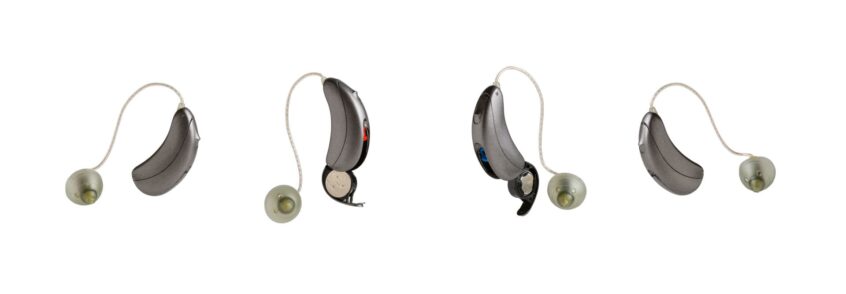Button-sized disposable batteries are generally safe, but they can be dangerous if swallowed, especially by children and pets. Now a new law, called Reese’s Law, has been enacted, requiring child-resistant packaging for these batteries.
Generally, button-sized disposable hearing aid batteries are safe, but according to the National Capital Poison Control Center, every year in the United States, more than 3,500 people of all ages swallow button batteries.
Because of the potential danger, especially to children and pets, a new federal law called Reese’s Law now requires that zinc-air button and coin cell batteries used in the U.S. include child-resistant packaging.
Reese’s Law is named for Reese Hamsmith who died at 18 months old after swallowing a button battery. The law strengthens safety standards for products with button batteries commonly found in everyday items, including cameras, toys, and hearing aids.
Even though these batteries are mercury-free, they still contain potentially dangerous metals which can cause serious injury and even death, if swallowed.
Reese’s law became effective March 8, 2024 and impacts new battery shipments into the U.S. going forward. Existing supplies of batteries can still be sold. However, throughout the year, you may notice a change in packaging as new shipments of the batteries in the child-resistant packaging are received.
It also is possible that retailers may experience supply chain issues due to the new packaging process. This means that they may have difficulty securing hearing aid batteries until the supply stabilizes.
In the meantime, please be patient as manufacturers work through these supply chain issues. Ultimately, the new law will result in a safer battery supply for all.
In addition, there’s no need to stop using batteries to power your hearing aids, but always exercise caution. The National Capital Poison Control Center recommends:
- ALWAYS keep batteries out of reach of children and pets.
- Never leave batteries sitting out. Store spare batteries, and batteries to be recycled, out of sight and reach of young children. If recycling is not possible, wrap used batteries securely and discard them where a child can’t find them.
- Don’t allow children to play with hearing aid batteries.
- Alert family members who wear hearing aids to the importance of keeping the batteries out of reach of small children at all times.
- Don’t insert or change hearing aid batteries in front of small children. This only increases their
curiosity about the devices. - Don’t store batteries near pills or in pill bottles or mistake batteries for pills.
- Don’t leave them on bedside tables or place them loose in your pocket or purse.
- Carefully look at every medicine you intend to swallow.
- Turn on the lights, put on your glasses, read the label and look at the medicine itself.
- If you use a hearing aid, these steps are especially important. All too often, tiny hearing aid batteries are swallowed with or instead of medications.
- Avoid storing or leaving batteries where they might be mistaken for, or swallowed with, food.
- Don’t leave batteries in drinking glasses or adjacent to nuts, candy, popcorn or other finger foods.
- If ingested, call the National Battery Ingestion Hotline at 800-498-8666.
- Do not delay medical care. Go to the closest emergency room immediately. Button batteries can cause serious internal burns, bleeding and injuries. A number of children have either been severely injured or have died from ingestion, including Reese.
- Likewise, if a pet swallows a hearing aid battery, it could be fatal. Take the pet to a veterinary clinic immediately.
- In most cases, medical care will include removing the battery.
- If you’re not sure if a child has swallowed a button battery, err on the side of caution and take them to an emergency room to be assessed.
- Damage can also occur if a child puts a battery in their nose or ear.
Remember, hearing aid batteries serve an important purpose, but ALWAYS be careful with these tiny but powerful devices. Children and pets are especially vulnerable to swallowing a battery that’s left on a counter, nightstand or that falls on the floor. But adults also have mistaken hearing aid batteries for medication and have swallowed them too.
Again, if you suspect a child, pet or an adult has swallowed a battery, seek immediate medical care.
For more information about Reese’s Law, visit the Consumer Product Safety Commission.



